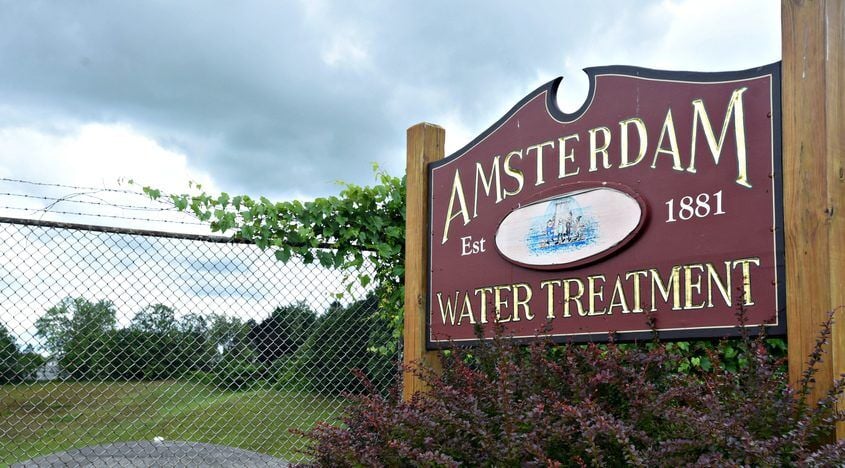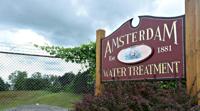AMSTERDAM — There were no new violations for contaminants or turbidity in the municipal water supply last year, according to Amsterdam’s annual water quality report for 2023.
“The city has very good water quality and it’s consistent with other years,” City Engineer Mike Clark said Monday.
“Each year, we continue to test for more and more contaminants and, fortunately, we didn't have to have anything on here that was a violation,” said Randy Gardinier, chief water plant operator for Amsterdam. “And things are tested in such small amounts it doesn't take much to show up.”
The only violations in the report were over five years old from samples collected at homes with lead service lines found to contain levels of lead exceeding standards set by the U.S. Environmental Protection Agency.
Lead was detected at 16 parts per billion in April 2018 and 21 parts per billion in September 2018. The maximum allowed level is not to exceed 15 parts per billion.
“If people have plastic or copper lines, then they’re not going to have the exposure to lead that somebody with a full lead service line may have,” Gardinier said.
Those old violations have been repeated in all subsequent water quality reports until the city addressed known corrosion issues with its water supply. Regular lead testing was suspended in the interim.
A $1.32 million corrosion control project was completed at the water treatment plant last year with only punch list items still being worked on. It was funded by an $898,000 grant from the state Office of Homes and Community Renewal and federal coronavirus relief aid.
Updates to equipment and the chemicals involved in the treatment process to increase the alkalinity of the water — or its ability to resist acidity — has made the pH level of the city’s water supply more stable.
“We’ve certainly noticed an improvement, we’ve had chemical and electricity savings from that, as well,” Gardinier said. “Our facility is running a lot better … and that’s been helpful.”
The corrosion control project will limit lead from leaching out of service lines containing that material and entering the water as it flows directly into those homes.
New lead testing has finally resumed in the city with samples collected from 60 sites last month. Those results will be shared with property owners before they are publicly reported.
Additional water samples will be collected from sites with lead service lines testing the water contents every six months until the EPA finalizes its new rules for lead and copper, Gardinier said.
“It should help reduce it,” Clark said. “It's one step. The only way you're going to get all the lead out of drinking water in someone’s house is to completely remove the service.”
Officials are in the process of identifying the materials of service lines across the city in order to develop an inventory of lead lines as required by the EPA. Several appeals have been made asking residents to complete an online survey.
Only a few hundred residents have responded out of the approximately 5,600 water services citywide. Clark estimated there could be around 1,500 to 1,800 homes with lead service lines based on the age of construction. The material would mostly have been used in homes built before the 1950s.
“It's a long arduous process to determine what every water service for every customer in the city is,” Clark said.
Amsterdam will have support with that ongoing process after being selected for the first round of the EPA’s Get the Lead Out Initiative, which may involve grant writing assistance to help fund the replacement of lead service lines.
Normally, the city is responsible for replacing lines from the water main to the shutoff, while owners are responsible for the remainder of the line leading into their properties. A $521,785 state grant was used last year to replace the entire length of 51 residential lines at no cost to homeowners.
“A lot of folks don't have the money to do it themselves — to do their own side,” Clark said.
At roughly $10,000 per line, Clark acknowledged it could be costly to replace all of the lead service lines in the city and funding opportunities have been limited. Completing the inventory is the first step and officials are hopeful more grants will be offered in the future.
“If we don't know where these lead lines are, how can we replace them? That’s why we need the help from folks,” Gardinier said.
City residents can complete the survey on the water service line material in their homes online at lead-service-line-inventory-cityofamsterdam.hub.arcgis.com











